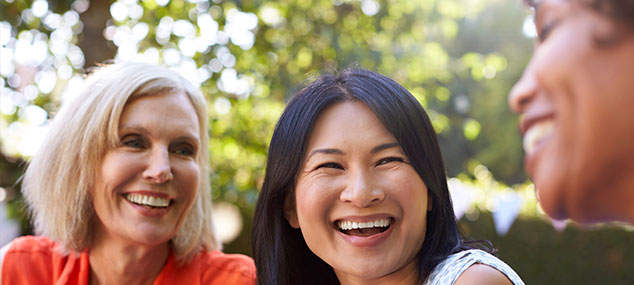
Northern NSW Local Health District (NNSWLHD) is helping women from multicultural backgrounds find out about and access local health services, thanks to a series of specially tailored information sessions.
In partnership with TAFE NSW, recently arrived women and those from refugee backgrounds are provided with information sessions which cover important health screening advice in a safe and inclusive environment.
Jane Newman, Clinical Nurse Consultant, said the sessions are delivered by experienced women’s health nurses, in plain English, with the help of TAFE NSW English language teachers and include information on where to find health services, how to make appointments, and the range of services on offer.
“We know women from culturally and linguistically diverse backgrounds can experience barriers when trying to access and engage with health services, and these sessions are a safe and culturally sensitive way to empower our community members,” Jane said.
“A significant part of this work is around building relationships between our health providers and community members, so that people know where to go or who to ask for help when they need it.
“Understanding the Australian health system can be complicated even for a long term resident, so it’s important for people to know that help is available, such as through health care interpreters, which can make accessing services easier.
“We have also started facilitating tours of local hospitals with groups, demystifying the health service and helping people to familiarise themselves with the hospital environment.”
To coincide with International Women’s Day, an upcoming series of health information sessions across the Northern Rivers will also provide women with access to free, self-collection cervical screening, as part of a collaboration with Cancer Institute NSW and Northern Rivers Women’s and Children’s Services (NORWACS). The new documentary “Conquering Cancer” will be available to view, as part of a global campaign to increase cervical screening for women.
“While Australia is leading the world in reducing cervical cancer, we want to ensure that information and screening opportunities are made available to women within local multicultural communities in a culturally safe and responsive way,” Jane said.
As well as providing information and answering questions about topics such as incontinence, menopause, contraception and pregnancy planning, Women’s Health Nurses can also assist women to make further appointments for other screening tests, or to access interpreters for healthcare appointments.
The sessions will be held at TAFE NSW campuses in Kingscliff, Ballina, Lismore, Yamba and Grafton.
Session details:
- TAFE NSW Lismore (SCU): Friday 1 March at 11:30 am
- TAFE NSW Grafton: Monday 4 March at 10:00 am
- TAFE NSW Ballina: Tuesday 5 March at 1:00 pm
- TAFE NSW Kingscliff: Tuesday 5 March at 11:30 am
- TAFE NSW Yamba: Wednesday 6 March at 10:00 am
For more information, please contact NNSWLHD Multicultural Strategies Project Officer, Rita Youssef-Price Rita.YoussefPrice@health.nsw.gov.au
For information about women’s health services in your local area, visit the NNSWLHD website.